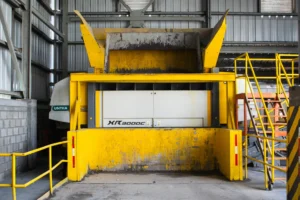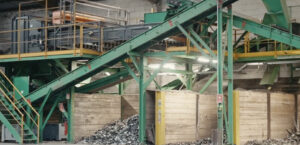Glass Recycling
All
Aerosol Recycling
Aluminum Recycling
Battery Recycling
Construction and Demolition Waste Recycling
E-Waste Recycling
End-of-Life Vehicles (ELV) Recycling
Fats & Waste Cooking Oil Recycling
Food Waste Recycling
Glass Recycling
Metals Recycling
Municipal Solid Waste (MSW) Processing
Paper Recycling
Plastic Recycling
Recycle Cardboard
Rubber Recycling
Textile recycling
Tire Recycling
Wood Recycling
Experts for Glass Recycling

Ankit Kalola
Fornnax Technology Pvt. LtdMr. Ankit Kalola serves as the Global Head – Sales at Fornnax Technology Pvt. Ltd, where he has played a pivotal role in shaping the company’s sales strategy and global footprint. A seasoned expert in shredding systems and end-to-end recycling solutions, he excels in building client-centric approaches, driving market penetration, and aligning technical solutions with customer needs. His strategic direction has significantly contributed to Fornnax’s success across diverse industries and geographies. Mr. Kalola’s leadership continues to fuel growth, innovation, and long-term partnerships worldwide. For further information or to connect with Mr. Kalola, please reach out at +91-9033077711 or email: info@fornnax.com.

Tom Jansen
TOMRA RecyclingAfter studying Chemical Engineering at the Technical University of Eindhoven, the Netherlands, Tom started working as Sales Engineer at Innov-X Systems. He initially focused on selling handheld XRF equipment in the Benelux, while gradually extending the geographical territory over the years. From 2007 he was heavily involved in the pioneering of automated XRF sensor technology, bringing this new technology to the metal scrap market worldwide. Tom joined TOMRA Sorting (then Titech GmbH) in 2011 as Sales Manager responsible for the Metal Recycling market in the Netherlands and Belgium. Since then, in his role as Segment Champion for the ELV shredder segment, he has also supported the metal recycling market in the Middle East region, Italy, Greece and projects in several other countries.
Glass is a durable and versatile material made primarily from natural resources such as sand, soda ash, and limestone. Its transparency, strength, and chemical stability make it suitable for a wide range of applications, including packaging, construction, and household products. Because it can be reused without loss of quality, glass recycling plays a key role in sustainable manufacturing systems.
Glass recycling significantly reduces the environmental impact of production. Melting recycled material requires considerably less energy than producing new material from raw ingredients. This lower energy demand helps reduce greenhouse gas emissions and decreases overall production costs. In addition, glass recycling conserves valuable natural resources by reducing the need for sand, soda ash, and limestone extraction.
During the recycling process, collected material is sorted, cleaned, and crushed into cullet. This cullet is then used as an input in manufacturing furnaces, where it improves melting efficiency and extends equipment life by lowering operating temperatures. New bottles and jars produced from recycled content offer the same quality, safety, and performance as those made from virgin materials.
By increasing collection rates and investing in efficient processing systems, glass recycling supports circular economy principles. It reduces landfill waste, conserves raw materials, and contributes to more energy-efficient and environmentally responsible industrial production.










